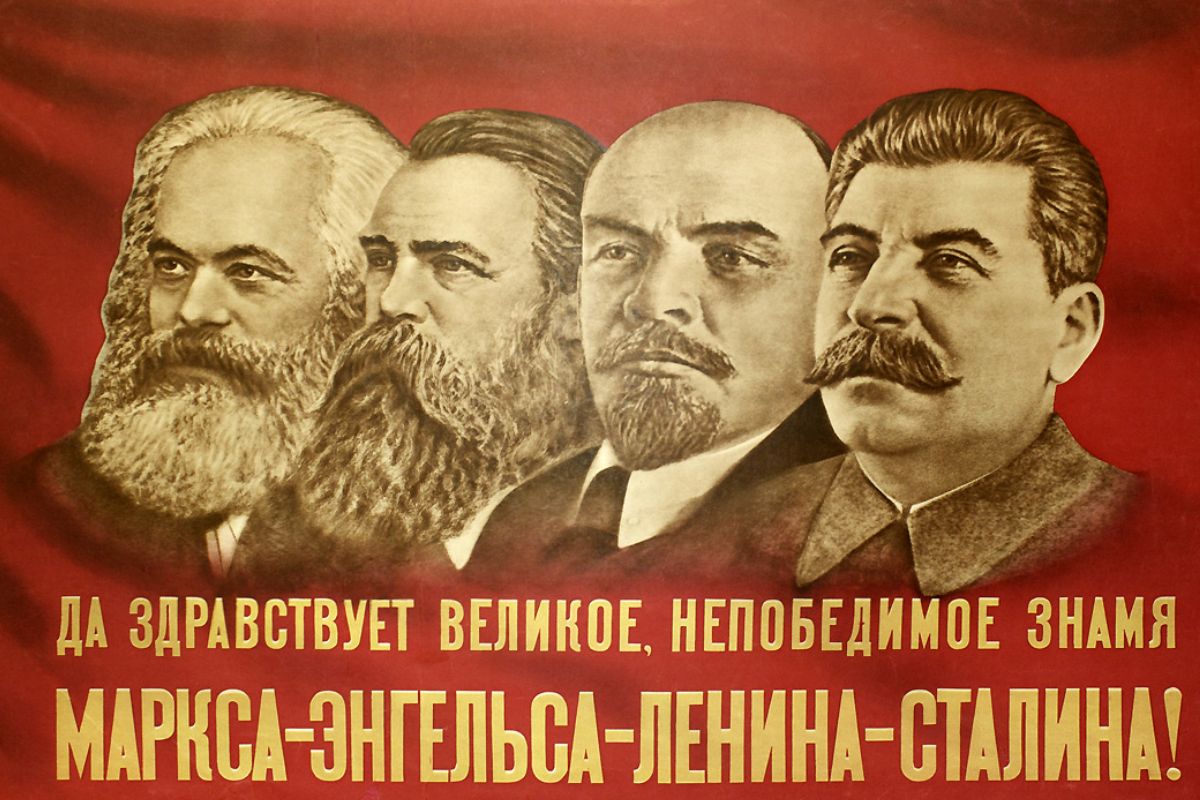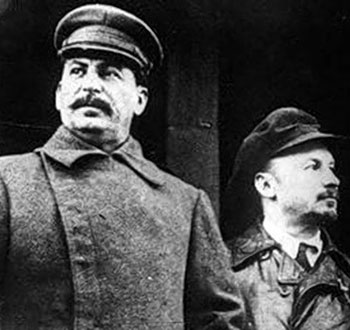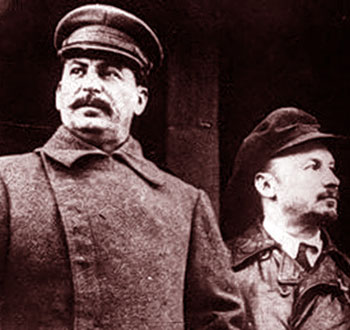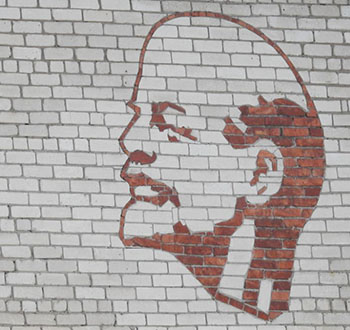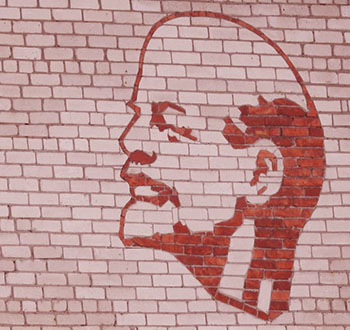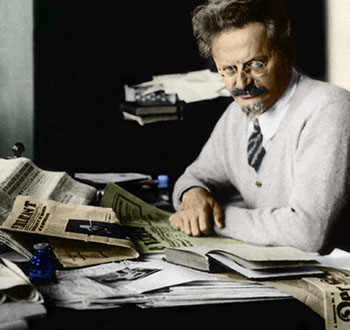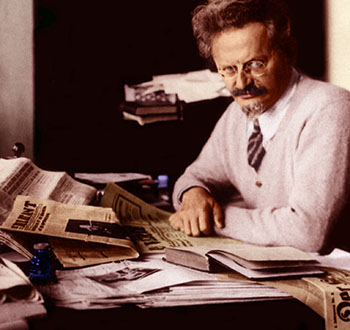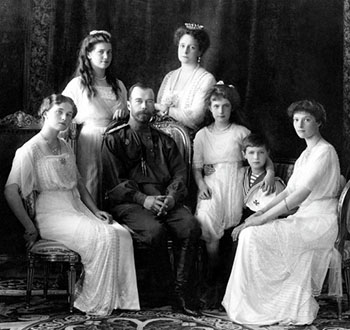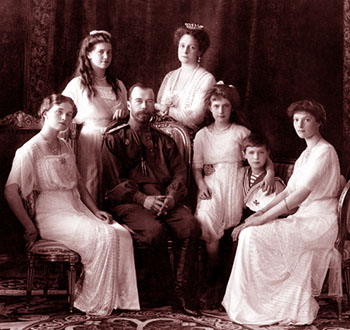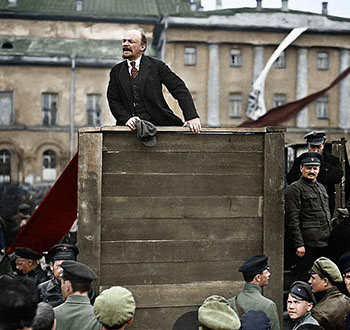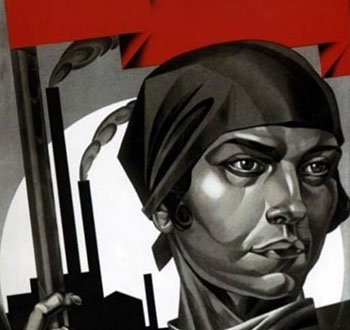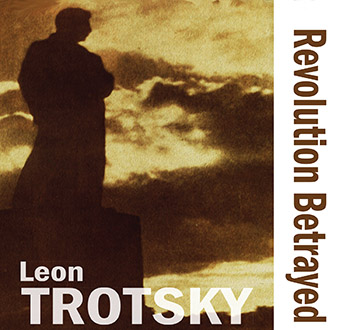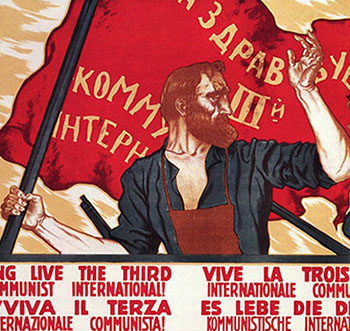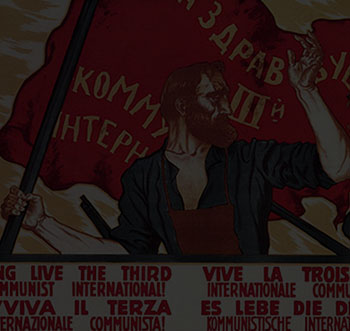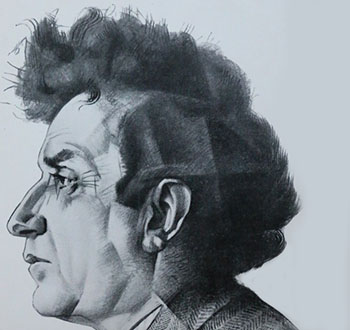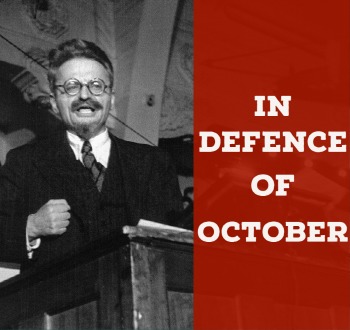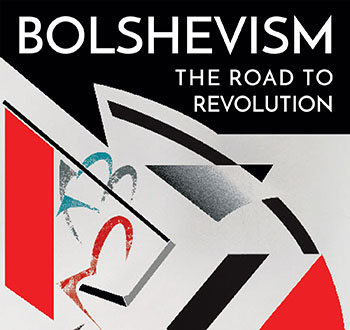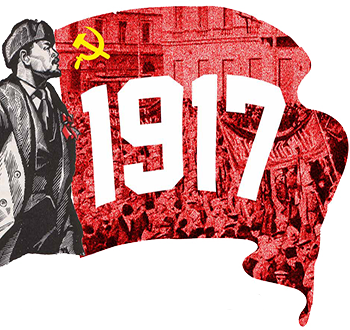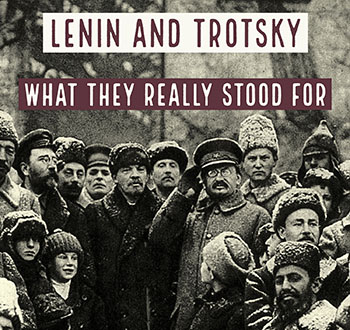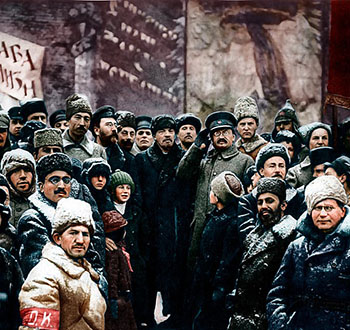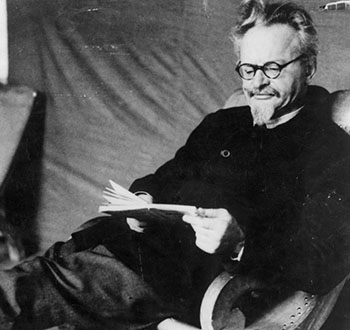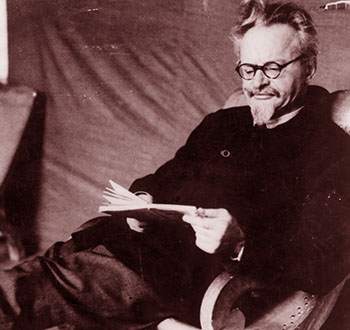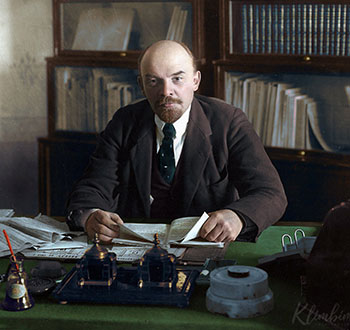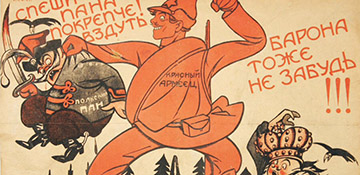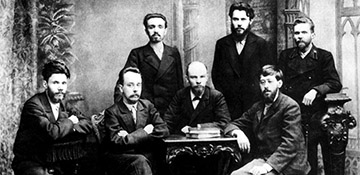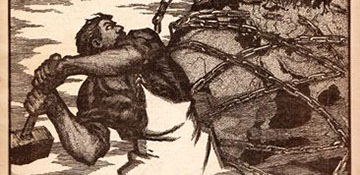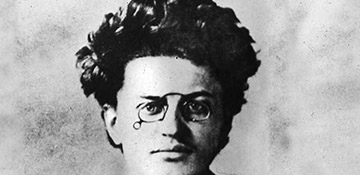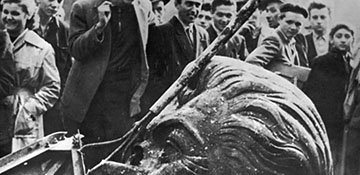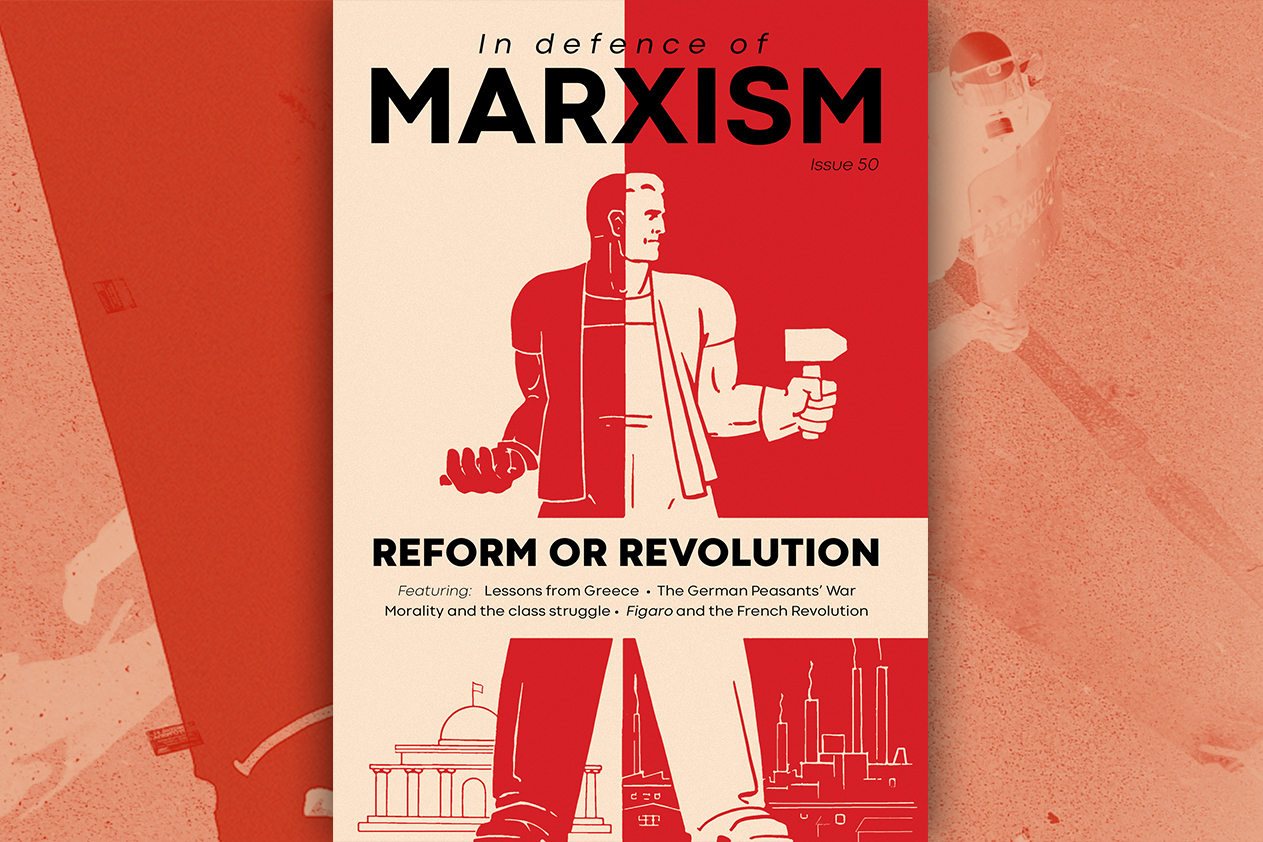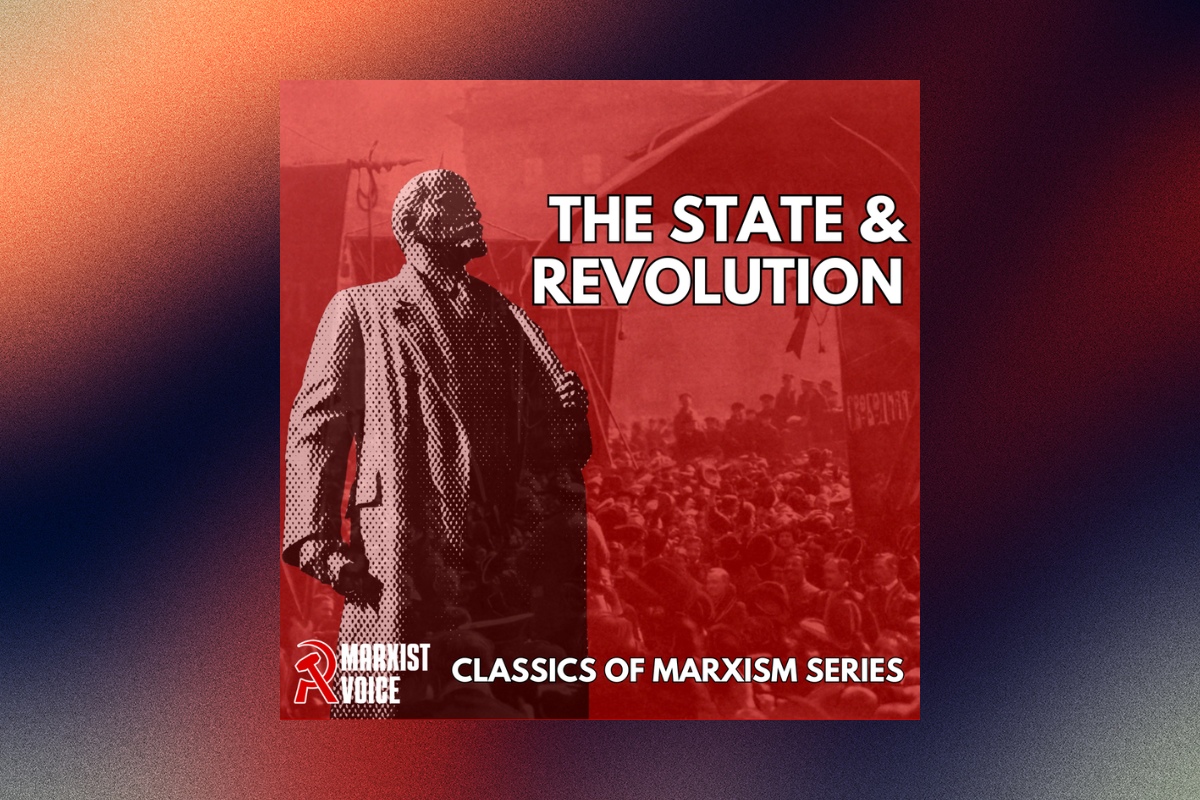The Soviet Union achieved much in terms of economic development and social gains, considering the backward economy it inherited from the past, but ultimately it failed and collapsed. Did it fail because socialism cannot work?
Here we provide a number of articles that deal with what the Russian Revolution really was, its subsequent degeneration, the role of Trotsky and the Left Opposition in combating the rising Stalinist bureaucracy; and we also answer the numerous distortions and slanders of bourgeois historians who attempt to depict Stalinism as the inevitable outcome of Lenin’s ideas.
See our specially dedicated site about the 1917 Russian Revolution, In Defence of October, with in depth material – including articles and videos – about all aspects of this pivotal point in human history.
Learn the basics
Marxist classics
& books
Stalin was a usurper of power who destroyed Lenin's party, liquidated the political conquests of October and wrecked the Communist International.
The early symptoms of bureaucratic degeneration in Russia were noted by Lenin. He spent his last months fighting against these reactionary tendencies.
Was Stalin’s victory inevitable? Leon Trotsky explained that without support from the world revolution, the bureaucracy would have been impossible to defeat.
No other event in human history has been the subject of more distortions, falsehoods and fabrications than the Russian Revolution.
In-depth analysis
Marxist classics
& books
After the Russian Revolution working people took power into their own hands and began the gigantic task of the socialist re-construction of society.
Contrary to the oft-repeated slanders, the Stalinist regime was the antithesis of the democratic regime established by the Bolsheviks in 1917.
The Revolution Betrayed is the only serious Marxist analysis of what happened to the Russian Revolution after the death of Lenin or why the Soviet Union collapsed.
What happened to the Communist International established in the aftermath of the Russian revolution? Originally written in June 1943 by Ted Grant.
Just a few years after it entered the scene of history, the Comintern suffered a sudden, dramatic, and irreversible decline. What happened?
Trotsky examines the revolution’s bureaucratic degeneration, which resulted in the Stalinist antithesis of the democratic workers’ state. Available from Wellred as part of The Classics of Marxism: Volume Two (also as ebook).
In Defence of October is the title of a speech delivered to a meeting of Social Democratic students in Copenhagen in 1932. Also available from Wellred as part of The Classics of Marxism: Volume Two.
Marxist classics & books
Marxist classics
& books
Using a wealth of primary sources, Alan Woods reveals the real evolution of Bolshevism as a living struggle to apply the method of Marxism to the peculiarities of Russia. Available from Wellred (also as an ebook).
John Reed’s Ten Days that Shook the World represents one of the 20th Century’s greatest political-literary achievements, being one of the first book length eye-witness accounts of the great Russian October Revolution.
Alan Woods and Ted Grant in 1969 wrote this detailed reply to a leading theoretician of the CPGB to explain the real relationship between the ideas of Lenin and Trotsky.
This book traces the rise of Stalinism and the political counter-revolution, its emergence as a super-power after the Second World War, and its eventual collapse. Available from Wellred (also as an ebook).
The magnum opus of Trotsky's writings. Regarded by many as among the most powerful works of history ever written, The History of the Russian Revolution offers an unparalleled account of one of the most pivotal events in world history, written by one of its main participants.
The Revolution Betrayed is one of the most important Marxist texts of all time. In this book, Trotsky provided a brilliant and profound analysis of Stalinism, which has never been improved upon, let alone superseded. With a delay of 60 years, it was completely vindicated by history.
In this work, written in 1928, Trotsky chastised the then-Stalinist leadership of the Comintern and explained how the weaknesses of the communist parties and of their leadership did not fall from the sky.
1917 VIDEO SERIES
















Audio & Video
Marxist classics
& books
A recording from the Bristol Marxist society, in which Adam Booth provides an analysis of 1917, outlining the key processes during the Revolution, and drawing out the main lessons for Marxists today.
Alan Woods speaking on the subject of Bolshevism and the history of the Bolshevik Party at a Marxist School of Socialist Appeal in London.
Marie Frederiksen speaks on the rise and fall of the Comintern, which was founded by Lenin, Trotsky, and the Bolsheviks after the Russian Revolution.
An avalanche of books has been published to discredit Lenin, Trotsky and the Russian Revolution. First and foremost of these writers is Professor Robert Service. Alan Woods sets the record straight.
In conditions of crushing backwardness, the Soviet state degenerated with power being usurped by a privileged bureaucracy, which in turn ended up as a monstrous totalitarian regime. Fred Weston introduces a discussion on Stalinism.
A talk as part of the launch of the IMT's official 1917 centenary campaign, commemorating the historic events of the Russian Revolution, answering the lies, slanders, and distortions about Lenin, the Bolsheviks, and the Revolution.
Alan Woods discusses the significance of the Revolution, 100 years on. He answers the lies, myths, and distortions frequently made against the October Revolution, and explains how Lenin and the Bolsheviks were really able to lead the Russian workers and peasants to power.
Was the October Revolution a coup or a people's revolution? Was the Soviet Republic a setback or a leap forward for humanity? In this event, Alan Woods and Orlando Figes debate the true nature of the Russian Revolution, and what it meant for the people of Russia and the class struggle internationally.
Marie Frederiksen explains that what collapsed was not genuine Communism, but a deformed caricature of Communism, strangled and suffocated by the growth of an enormous bureaucracy. Despite this, enormous gains were made as a result of the planned economy.

